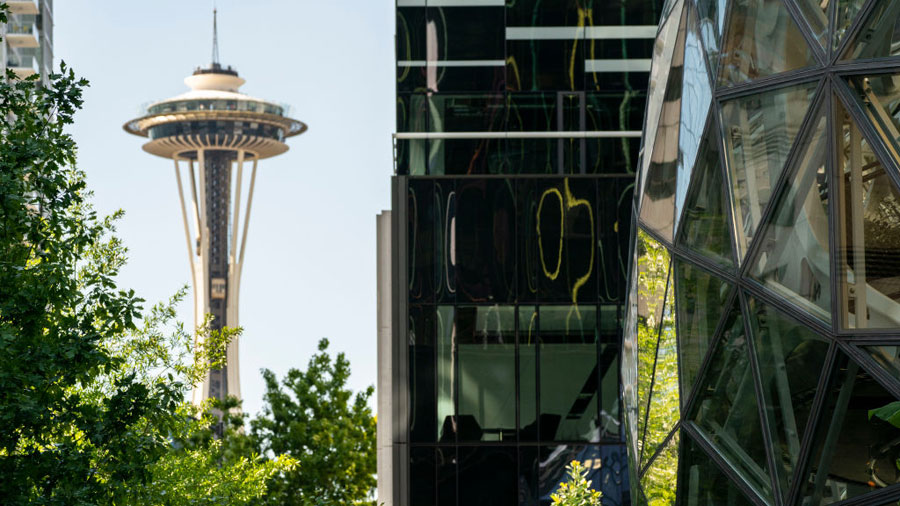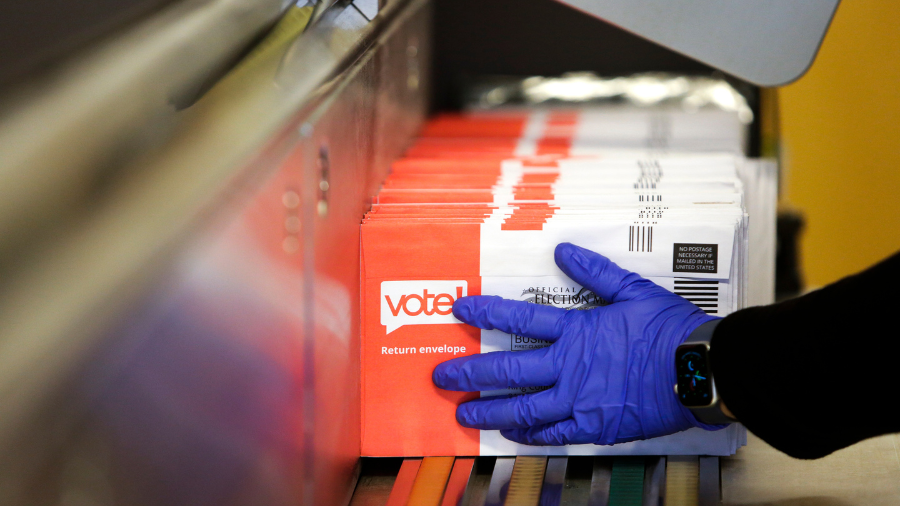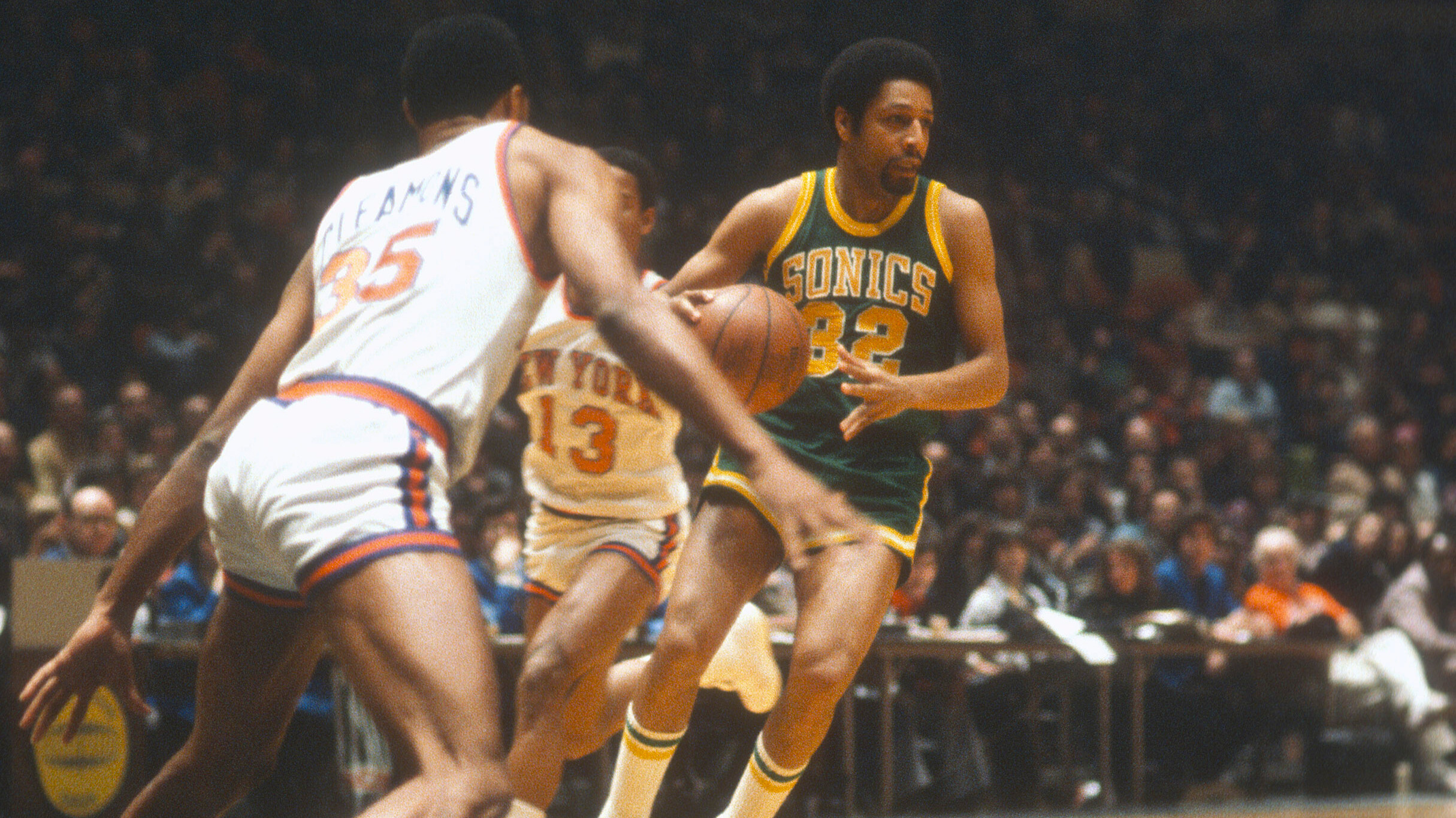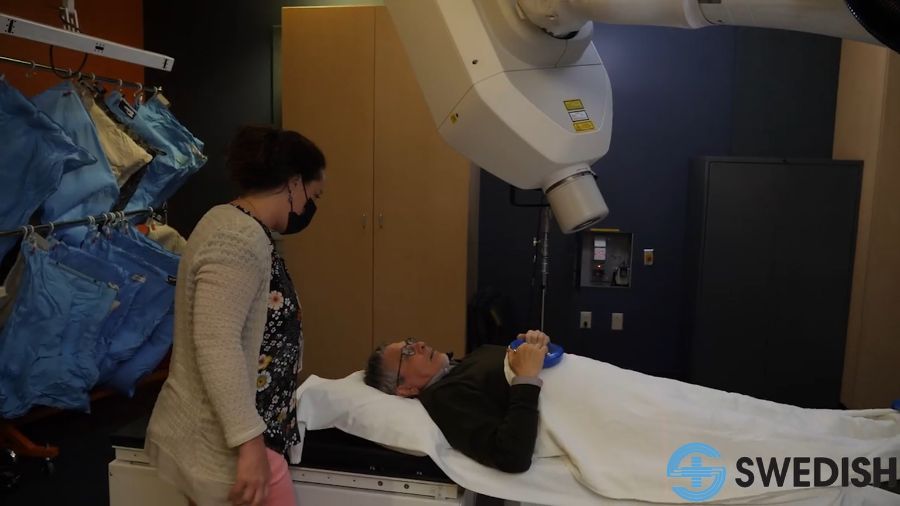Corporate money wins Seattle in new form after sparking ire of voters in 2019
Nov 9, 2021, 5:35 AM | Updated: 11:02 am

The Space Needle is seen near The Spheres at Amazon in downtown Seattle. (Photo by David Ryder/Getty Images)
(Photo by David Ryder/Getty Images)
In 2019, an attempt by local corporations to put millions of dollars into electing moderate, business-friendly Seattle City Council candidates not only fell short, but by all accounts, resonated poorly with voters. Two years later, a slate of business-friendly candidates won all but one major race, with corporate money finding influence in more subtle ways leading up to Election Day.
Seattle conservatives aim for influence behind the scenes
The election in 2019 featured seven of nine Seattle council seats up for grabs, representing a significant opportunity to wield control of the city’s legislating body for years to come. That led to the formation of a local PAC known as the Civil Alliance for a Sound Economy (CASE), sponsored by the Seattle Metropolitan Chamber of Commerce.
CASE’s stated goals revolved around support for business-friendly candidates, drawing large donations from several prominent companies like Expedia ($50,000), Alaska Airlines ($20,000), Boeing ($15,000), and PEMCO Insurance ($7,500), among others. Perhaps most notably, though, was a $1.4 million contribution from Amazon, which quickly morphed into a narrative that local corporate interests were attempting to buy their way into city hall.
That anti-Amazon messaging proved to be especially significant for District 3 Councilmember Kshama Sawant, who described her narrow victory in her bid for reelection as a win for “working people against the richest man in the world,” Jeff Bezos.
In the end, just two of the seven candidates CASE endorsed won their respective council elections, one of whom was incumbent District 5 Councilmember Debora Juarez.
As Monisha Harrell — 2021 mayor-elect Bruce Harrell’s niece and campaign manager — put it in 2019, “you never want to make yourself the story, and (Amazon) did just that.”
“It became about, ‘Are you pro-Amazon or not?’ and the personalities of the individual candidates in some way got lost in that,” she told the Seattle Times two years ago.
CASE and the Seattle Chamber of Commerce later vowed to sit out future elections, as part of an attempt to rehabilitate a reputation marred by corporate money in 2019.
Fast forward to 2021, and political donations from companies were almost nonexistent, perhaps having learned a hard lesson from allowing voters to associate recognizable corporate brands with a local election.
Instead, a roster of individual corporate donors representing similar interests took the lead in 2021, this time spread out across a series of PACs and campaigns.
That included local real estate CEO John Goodman, who shelled out $90,000 to the Harrell for Seattle’s Future PAC, $25,000 to Seattle for Common Sense (supporting city attorney candidate Ann Davison), and $5,000 to Change Seattle (supporting Sara Nelson for city council). Goodman also donated $50,000 to the Compassion Seattle homelessness initiative supported by this year’s slate of moderate and conservative candidates.
Wins for moderate candidates prove Seattle’s ‘political landscape has shifted’
Goodman’s business partner George Petrie — more recently known for his status as a donor to former President Donald Trump’s “stop the steal” effort — poured over $61,000 into Harrell for Seattle’s Future, $25,000 into Seattle for Common Sense, $50,000 into Compassion Seattle, and $5,000 into Change Seattle.
Also making the list of big-spending donors that contributed to the trifecta of PACs supporting Harrell, Davison, and Nelson was Vulcan Inc., the investment company founded by the late Paul Allen and his sister Jody.
Meanwhile, the bulk of big-money support for progressive candidates like Lorena Gonzalez, Nikkita Oliver, and Nicole Thomas-Kennedy came from local labor groups and unions. Among those groups was a local PAC registered as Essential Workers for Lorena, which brought in nearly $1 million in donations. That included $500,000 from Unite Here Tip, a PAC that targets state and city elections across the United States with “contributions and expenditures to elect candidates who support the rights and interest of working people and their families.”
Oliver similarly received labor support in the form of PAC money from the Civil Alliance for a Prosperous Economy, which received over $125,000 from a collection of local unions.
Each of Gonzalez, Oliver, and Thomas-Kennedy also hammered home messaging critical of 2021’s resurgence in corporate election money. Despite that, the final results indicate that their pitch didn’t resonate with voters as much as the flashier Amazon-centric narrative that tipped the scales in 2019. What appeared to stick in people’s heads more was a well-funded message painting a picture of the existential danger posed by a city edging further leftward.
There are plenty of other theories that could answer the question as to why moderates and conservatives saw more success in 2021 after similar candidates were roundly defeated just two years prior. Perhaps the timing was better for the tough-on-crime promise of Davison as city attorney, or voters felt secure in Harrell’s image as a business-savvy “change agent.”
In terms of the business-friendly interests that supported those candidates, though, a roadmap was drawn for redirecting the ire of voters away from corporate money well into the future.












